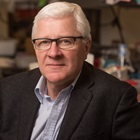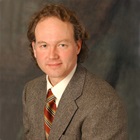The American Society of Hematology Honors John E. Dick, PhD, and Reed E. Drews, MD, for Outstanding Mentorship
(WASHINGTON, August 14, 2018) – The American Society of Hematology (ASH) will recognize John E. Dick, PhD, of the University of Toronto, Princess Margaret Cancer Center, and Ontario Institute for Cancer Research in Toronto, and Reed E. Drews, MD, of the Cancer Center at Beth Israel Deaconess Medical Center in Boston, with the 2018 Mentor Award for their sustained, outstanding commitment to the training and career development of early-career hematologists.
The ASH Mentor Award was established in 2006 to recognize hematologists who have excelled in mentoring trainees and colleagues. Each year, the Society recognizes two outstanding mentors in the areas of basic science, clinical investigation, education, or clinical/community care who have had a significant, positive impact on their mentees’ careers and, through their mentees, have advanced research and patient care in the field of hematology. ASH President Alexis Thompson, MD, MPH, of the Ann and Robert H. Lurie Children’s Hospital of Chicago, will present this award to Drs. Dick and Drews on Sunday, December 2, during the 60th ASH Annual Meeting and Exposition in San Diego.
“This personal recognition with the ASH Mentor Award has made me realize that what I do has had a true impact on the lives of others,” said Dr. Dick. “I have been privileged to work with remarkable trainees, and I am so incredibly proud of my lab family, and how each person has gone on to accomplish so much in their own right. It means so much to remain connected with virtually all of my former trainees over the course of 30 years.”

Dr. Dick has supported more than 130 careers throughout his 30 years of mentoring trainees. He is a Canada research chair in stem cell biology, professor in the department of molecular genetics at the University of Toronto, senior scientist at Princess Margaret Cancer Centre, an investigator at the McEwen Centre for Regenerative Medicine, and the director of translational research initiative in leukemia at the Ontario Institute for Cancer Research. He is a renowned researcher who has made seminal contributions to the study of healthy and leukemic stem cells. His scientific accomplishments have earned him ASH honorific awards in the past: the William Dameshek Prize in 2005, and the E. Donnall Thomas Prize in 2009.
Dr. Dick credits his two mentors during his post-doctoral research at Ontario Cancer Institute and Mount Sinai Hospital Research Institute at the University of Toronto for inspiring him to become a mentor himself. His nominators lauded his support and encouragement in the laboratory, specifically with individuals who had little prior laboratory experience or were experiencing research setbacks.

Dr. Drews is being recognized for his 20 years of dedicated service mentoring nearly 120 fellows and 600 students at Beth Israel Deaconess Medical Center (BIDMC) in Boston, where he also started his own career. He has directed the BIDMC hematology/oncology fellowship program since 1997 and has also served as hematology residency education coordinator and the assistant chief of medicine for medical student education, among other leadership positions during his tenure. Dr. Drews is currently an associate physician at BIDMC and an associate professor of medicine at Harvard Medical School. His mentees have achieved success in a variety of settings, including as leaders at major academic institutions across the country. Of note, Dr. Drews promotes resilience by encouraging his trainees to participate in activities outside of medicine. He hosts a popular book club for fellows and is known to be a talented cellist and pianist.
“I have been involved in the education of medical students, residents, and fellows since the beginning of my academic career nearly 40 years ago. I am always interested in learning about what trainees want to be, and my door is always open to giving advice,” said Dr. Drews. “It has been so heartwarming to see that many trainees look up to me as their role model and to learn that so many former fellows, senior faculty colleagues, and mentors of mine teamed up to nominate me for the ASH Mentor Award.”
Dr. Drews embarked on his path toward mentorship at the urging of his own mentors, who recognized his passion for the clinic and encouraged him to pursue a career that would include educating medical students, residents, and fellows.
“Drs. Dick and Drews embody the traits of our most successful mentors in that they are fully dedicated and committed to the success of their trainees in the laboratory and clinic, respectively,” said Dr. Thompson. “For all of the accomplishments of our peers that we recognize at the ASH annual meeting each year, none of them would be possible without strong mentors who consistently take the time and effort to support the next generation of hematologists.”
The American Society of Hematology (ASH) (www.hematology.org) is the world’s largest professional society of hematologists dedicated to furthering the understanding, diagnosis, treatment, and prevention of disorders affecting the blood. For 60 years, the Society has led the development of hematology as a discipline by promoting research, patient care, education, training, and advocacy in hematology. ASH publishes Blood (www.bloodjournal.org), the most cited peer-reviewed publication in the field, which is available weekly in print and online. In 2016, ASH launched Blood Advances (www.bloodadvances.org), an online, peer-reviewed open-access journal.
CONTACT:
Sara Khalaf, American Society of Hematology
[email protected]; 202-552-4925